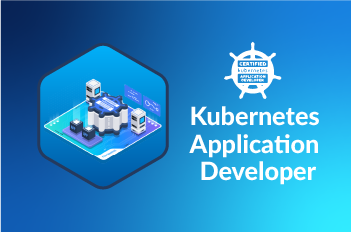Table of Contents
- Introduction
- The Rise of Kubernetes in the Tech World
- Why CKAD Certification Matters
- Career Opportunities for CKAD Certified Developers
- Kubernetes Engineer
- DevOps Engineer
- Cloud Architect
- Site Reliability Engineer (SRE)
- How to Prepare for the CKAD Exam
- Recommended Resources
- Hands-on Practice
- Mock Exams
- FAQs about CKAD Certification
- Conclusion
1. Introduction
In the rapidly evolving landscape of technology, staying ahead of the curve is essential for a successful career. One area that has witnessed significant growth and demand is Kubernetes, a container orchestration platform that has become the de facto standard for managing containerized applications. This article explores the career opportunities for a Kubernetes developer, with a focus on the Certified Kubernetes Application Developer (CKAD) certification.
2. The Rise of Kubernetes in the Tech World
Kubernetes, an open-source container orchestration platform, has revolutionized the way applications are deployed, scaled, and managed. Its ability to automate the deployment and scaling of containerized applications has made it a favorite among developers and organizations alike. As a result, the demand for professionals with expertise in Kubernetes has surged, creating a plethora of career opportunities.

2. The Rise of Kubernetes in the Tech World
In the ever-evolving landscape of technology, one platform has emerged as a game-changer, revolutionizing the way applications are deployed and managed – Kubernetes. This open-source container orchestration platform has witnessed an unprecedented rise in popularity, becoming the de facto standard for organizations seeking efficient and scalable solutions for their containerized applications.
2.1 The Need for Orchestration
As the adoption of containerized applications soared, the need for effective orchestration became apparent. Manually managing the deployment, scaling, and operation of containers proved to be a complex and time-consuming task. Kubernetes, developed by Google, addressed these challenges by automating and streamlining these processes, offering a robust solution for container orchestration.
2.2 Industry Adoption
Kubernetes quickly gained traction across industries, earning the support of major tech giants and enterprises. Its open-source nature and strong community backing contributed to its rapid growth. Organizations recognized the benefits of Kubernetes in terms of flexibility, scalability, and resource optimization, making it an integral part of their technology stack.
2.3 Standardization and Portability
Kubernetes brought a level of standardization to container orchestration, providing a common framework that developers and operations teams could rely on. This standardization not only simplified the development and deployment processes but also enhanced the portability of applications across different environments, from on-premises data centers to public clouds.
2.4 Scalability and Efficiency
One of the key reasons behind the rise of Kubernetes is its ability to scale applications seamlessly. Whether handling a small-scale deployment or managing a large cluster of containers, Kubernetes ensures optimal resource utilization and efficient scaling. This scalability has made it a go-to solution for businesses with dynamic and evolving application needs.
2.5 Community Collaboration
The success of Kubernetes can be attributed to its vibrant and collaborative community. Developers, system administrators, and industry experts come together to contribute to the platform’s development, share best practices, and address challenges. This collaborative spirit has fueled continuous innovation, making Kubernetes adaptable to the ever-changing demands of the tech landscape.
2.6 Adoption by Cloud Providers
Major cloud providers, such as AWS, Microsoft Azure, and Google Cloud Platform, have embraced Kubernetes, offering managed Kubernetes services to their users. This integration has further accelerated the adoption of Kubernetes, as organizations can seamlessly deploy and manage their containerized applications in the cloud environment of their choice.
2.7 Future Outlook
As technology continues to advance, the relevance and significance of Kubernetes are poised to grow. Its role in enabling container orchestration, ensuring application reliability, and supporting cloud-native architectures position it as a foundational technology for the future. The rise of Kubernetes signifies a paradigm shift in how we approach application development and deployment, ushering in a new era of efficiency and scalability in the tech world.
3. Why CKAD Certification Matters
The Certified Kubernetes Application Developer (CKAD) certification is a testament to an individual’s proficiency in designing, building, configuring, and exposing cloud-native applications for Kubernetes. It is a sought-after credential that validates a developer’s skills in working with Kubernetes, making them stand out in a competitive job market.
4. Career Opportunities for CKAD Certified Developers
4.1 Kubernetes Engineer
A Kubernetes Engineer plays a crucial role in designing and implementing Kubernetes solutions. They are responsible for creating and managing containerized applications, ensuring seamless deployment, scaling, and maintenance. With a CKAD certification, developers can excel in this role and contribute to the efficient functioning of Kubernetes clusters.
4.2 DevOps Engineer
DevOps practices emphasize collaboration and communication between development and operations teams. CKAD certified developers are well-equipped to bridge the gap between these teams by leveraging their Kubernetes skills. DevOps Engineers with CKAD certification can streamline the deployment pipeline, enhance automation, and improve overall system reliability.
4.3 Cloud Architect
Cloud Architects design and implement cloud infrastructure, and Kubernetes often plays a pivotal role in cloud-native solutions. CKAD certified professionals possess the expertise to integrate Kubernetes into cloud architectures, making them valuable assets in the design and implementation of scalable, resilient, and cost-effective cloud solutions.
4.4 Site Reliability Engineer (SRE)
Site Reliability Engineers focus on maintaining the reliability and performance of applications. CKAD certified developers are well-suited for SRE roles, as they possess the skills to ensure the stability and availability of containerized applications. Their expertise in Kubernetes allows them to implement best practices for monitoring, incident response, and system reliability.
5. How to Prepare for the CKAD Exam
Achieving CKAD certification requires thorough preparation and hands-on experience with Kubernetes. Here’s a guide on how to prepare effectively:
5.1 Recommended Resources
- Kubernetes Official Documentation
- Online Courses (e.g., Udacity, Coursera)
- CKAD Exam Curriculum
- Practice Tests and Mock Exams
5.2 Hands-on Practice
The importance of hands-on experience cannot be overstated. Set up a Kubernetes cluster, work on real-world scenarios, and gain practical knowledge. Use platforms like Minikube or Kubernetes playgrounds to practice in a controlled environment.
5.3 Mock Exams
Simulate the exam environment by taking mock exams. This helps in familiarizing yourself with the format, time constraints, and types of questions you may encounter. Identify weak areas and focus on strengthening them during your preparation.
6. FAQs about CKAD Certification
Q1: Is CKAD certification necessary for a career in Kubernetes development?
A1: While not mandatory, CKAD certification enhances your credibility and opens up more job opportunities.
Q2: Can I take the CKAD exam without prior Kubernetes experience?
A2: It’s recommended to have hands-on experience with Kubernetes before attempting the CKAD exam.
Q3: How long does it take to prepare for the CKAD exam?
A3: The preparation time varies, but dedicating 2-3 months for consistent study and practice is advisable.
Q4: Are there recertification requirements for CKAD?
A4: Yes, CKAD certification is valid for two years, and recertification is required to maintain its validity.
Q5: What is the passing score for the CKAD exam?
A5: The passing score for the CKAD exam is 66%.
7. Conclusion
In the dynamic world of technology, being a CKAD certified developer opens doors to a plethora of career opportunities. Whether you aspire to be a Kubernetes Engineer, DevOps Engineer, Cloud Architect, or Site Reliability Engineer, the CKAD certification serves as a valuable asset in showcasing your expertise. Invest time in thorough preparation, hands-on practice, and stay updated with the latest developments in Kubernetes to stay at the forefront of this exciting field. The journey to becoming a CKAD certified professional is not just about passing an exam; it’s about gaining the skills that will propel your career to new heights.









